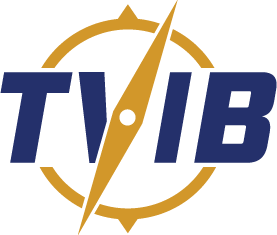Marine Internal Lead Auditor Course (VIRTUAL)
TVIB has partnered with SafeMARINER, LLC and ACTion group (d/b/a ACTSafe Training) in this Coast Guard recognized Marine Internal Lead Auditor course, which is designed to teach the specific skills and knowledge necessary to conduct and lead internal audits for commercial marine companies. This fast-paced, informative course requires active participation and successfully completing practical exercises, quizzes, and a final exam in order to earn a certificate.
This course meets the requirements of ANSI Z 490.1 Criteria for Accepted Practices in Safety, Health and Environmental Training and the requirements of 46 CFR 138.310(d)(2) for those individuals performing internal audits under Subchapter M.
Register July 20-21, 2021— VIRTUAL
Course Description
Length: 2 VIRTUAL days (16 hours)
Standard: USCG Recognized for Subchapter M, ISO 9001, ISO 19011, ANSI Z 490.1 – 2012
This course has a maximum size of 30 and a minimum of 8. Course is presently being provided remotely using computers.
Instructors: Rick Dunn, Captain David A. Foret, Jr.
Who Should Attend
- Internal auditors
- External auditors wishing to learn more about auditing principles and techniques
- Marine executives, HSE managers, operations managers, safety consultants and regulators
What’s Covered
- History of marine auditing
- Purpose and types of audits
- The relationship between internal and external audits
- Characteristics of effective internal system audits
- Planning and scheduling the audit
- Conducting the audit
- Audit procedures
- Phases of the audit
- Competence for internal auditors
- Reports and non-conformity statements
- Tracking and close-out of non-conformities, corrective and preventative actions
- Management system fundamentals
- Plan-Do-Check-Act continuous improvement model
- Management system standards: RCP, ISO 9001, ISO 14001, TSMS , ISM Code, TMSA requirements for internal audits
- Aspects of ISO 19011: guidelines for auditing management system
Other Notes
- This course is appropriate for internal auditing of marine companies that follow one or more of the following standards, including:
- AWO Responsible Carrier Program (RCP)
- ISM Code
- ISO 9001, ISO 14001
- OSHAS 18001
- Tanker Management Self Assessment (TMSA), Oil Companies International Marine Forum
- Offshore Vessel Management Self Assessment (OVMSA), Oil Companies International Marine Forum
- This course exceeds current RCP and regulatory requirements for internal auditor training for inland, coastwise and ocean (ISM Code) marine internal auditors.
